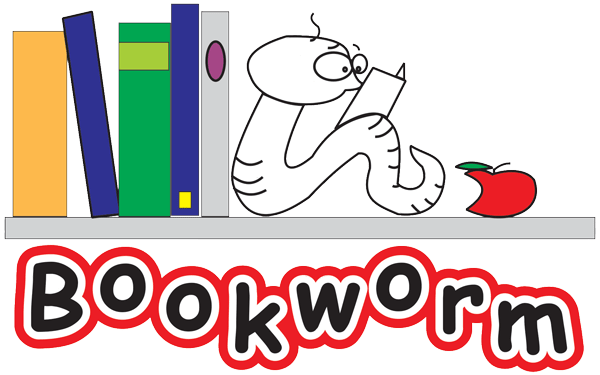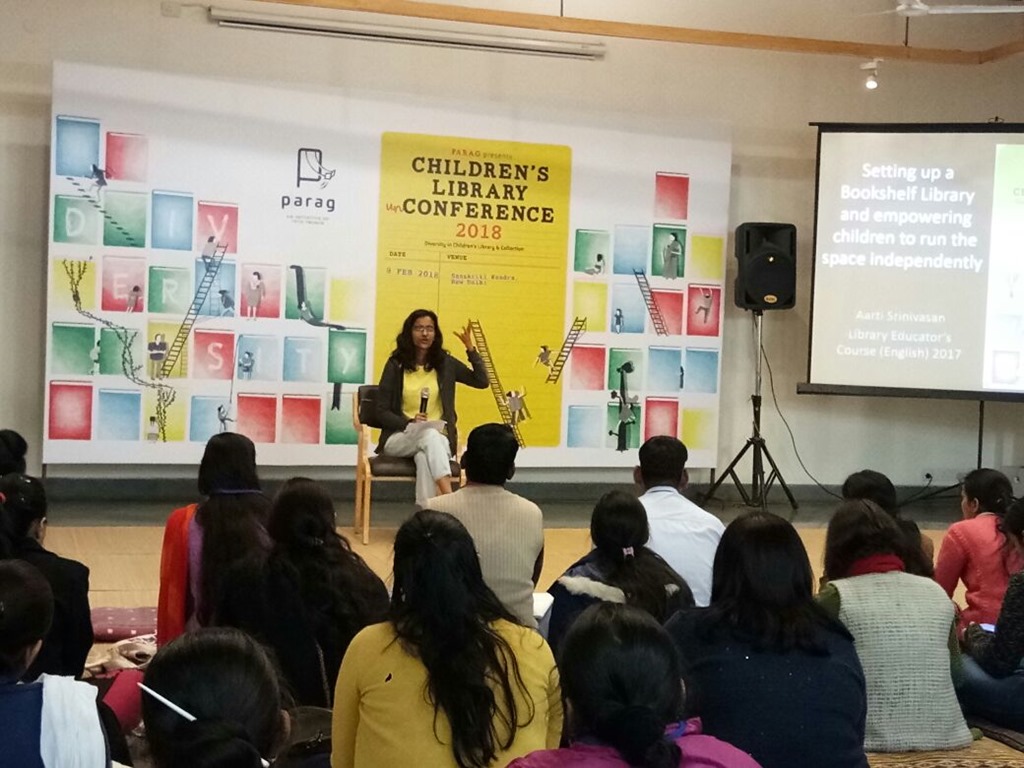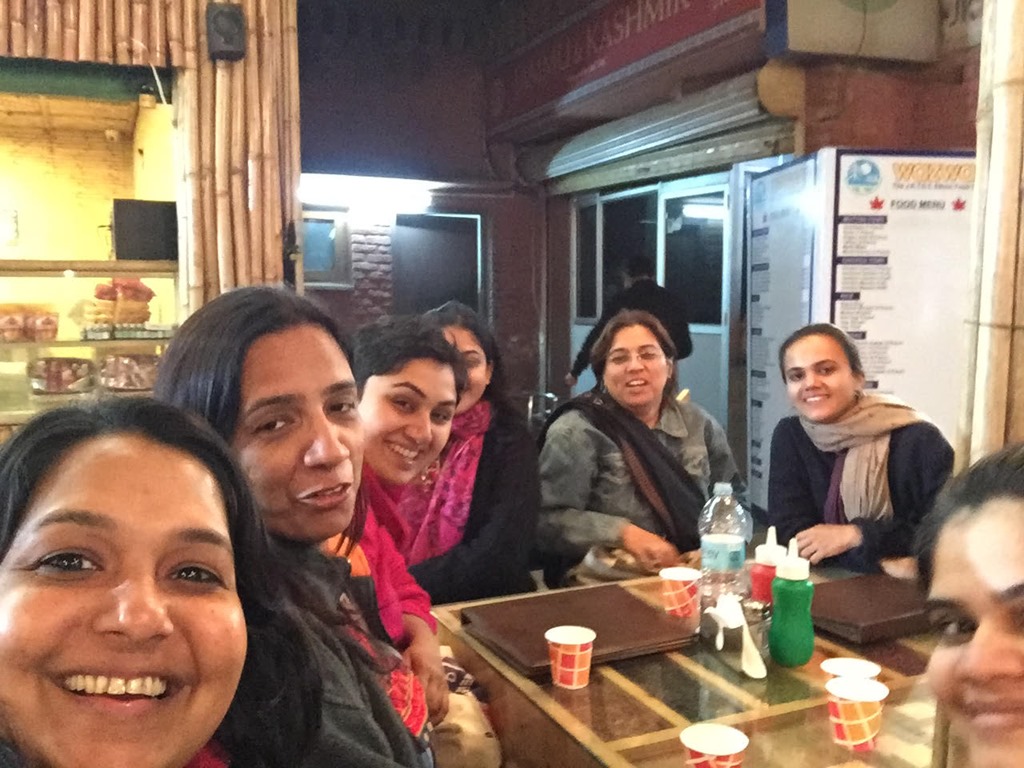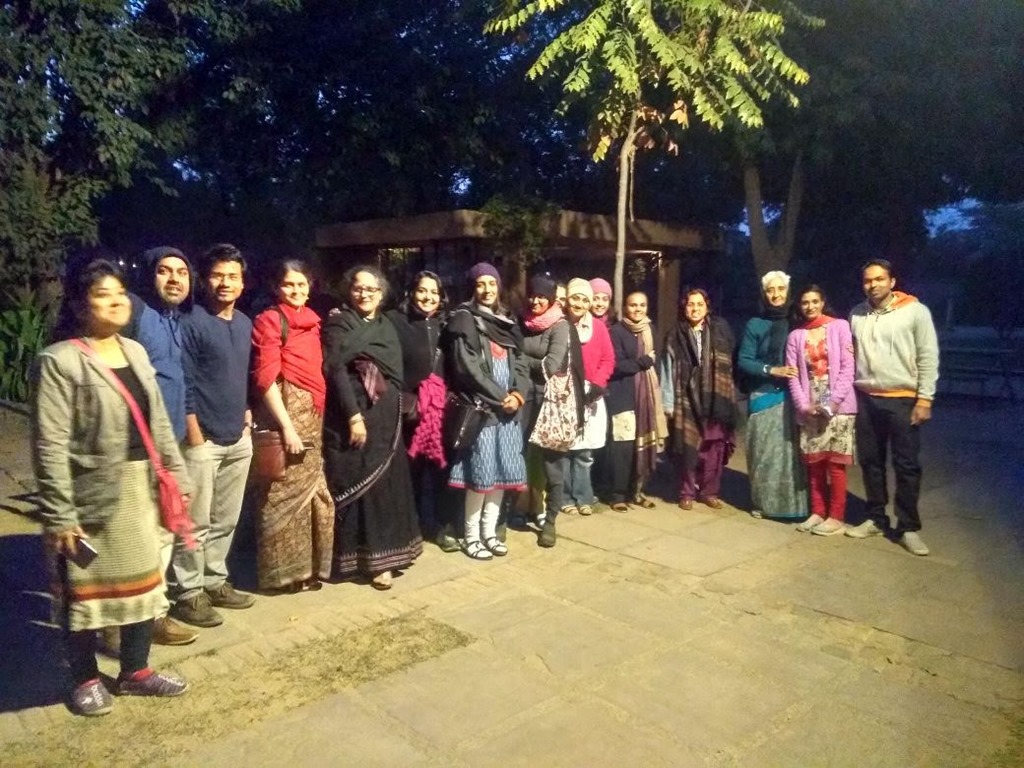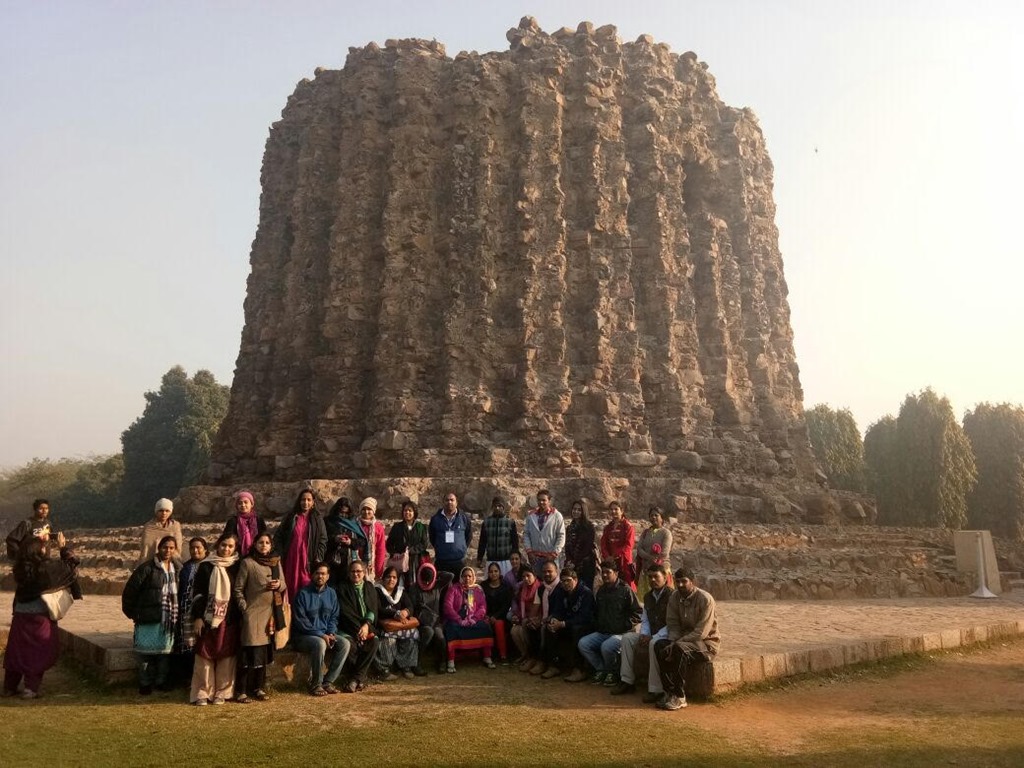Written by Joanne Saldanha
The excitement started in late December, when an email from Sujata bore news of the Children’s Library unConference 2018. Having absorbed, learnt and grown (at least that’s what I think!), so much during the Library Educators Course, it was absolutely a no-brainer to attend the unConference. A message went out on our LEC group, plans were made, google forms filled, tickets booked, then started the anticipating, coordinating and messaging my course mates.
I reached the venue Sanskriti Kendra, early on a cold misty morning. Greeted by the smoky air from the small bonfire keeping the watchman warm, a fellow participant showed me the way and I was soon swamped with a series of big hellos, warm smiles and hugs. Meeting our LEC mentors Usha Mukunda, Sujata Noronha and Deepali Correya as well as my course mates, with whom I had spent all of just 12 days along with 7 months of online contact…yet seemed to know forever, was just pure joy. That was the beauty of the LEC and thanks to Parag, a few us got to reconnect at the unConference.
Swaha Sahoo, the head of Parag, reiterated the need for Libraries as democratic and open spaces. The concept of reading begins with access, she said…open access, to browse, read, borrow and to participate in book related activities. The idea to bear in mind, is to spread the concept of books and reading as a pleasurable activity, as well as, of the library as a collaborative space, one where all stakeholders take ownership.
The key note address was a dynamic one by the very inspiring publisher, writer and feminist Urvashi Butalia. Ms. Butalia spoke about her journey in publishing as well as her pursuit of featuring diversity in the books she publishes. The stories she narrated were eye opening and a revelation about the different women’s voices in the country. Biblio-diversity is the term she used as she advised us to try and keep a pulse on what is happening around us, to ensure that our libraries have books that help explore these ideas and thoughts.
The three break-out sessions which followed were hard to choose between.
Sayoni Basu, editor of Duckbill Books, spoke about the need for diversity in children’s books.
Proity Roy, a children’s book illustrator whose work I much admire and appreciate, spoke about Diversity and Illustrations in Children’s Books.
I chose to attend the session with Samina Mishra, a film maker and author who spoke about her book My Sweet Home-Childhood stories from a corner of a city. I hoped to glean a few tips on her interactions with the children and I did. I took away the need for children’s voices to be heard, the need to give children the space to express themselves and the need to encourage their self-expression rather than to focus on the output. What impressed me was Samina Mishra’s narration about reaching out to the children in the seemingly impoverished area of Okhla in South Delhi, following a terrorist encounter in that area. In doing so Samina, gave the children a chance to express and record their stories and love for their neighbourhood, and I couldn’t help but think of the conversations which started in the process, as a healing. The power of books manifested in yet another way.
We were all excited about the session that followed…listening to the LEC alumni share their Field Project work. Aarti Srinivasan, one of my batch mates shared her experiences in getting the children from the Salvation Army home in Mumbai to set up their own library and how they took ownership for the care and issue of books. The room was buzzing at the idea of using cardboard boxes as shelves! I was so inspired by what the LEC Hindi alumni, Kavita and Nithu shared, although I did struggle a bit to understand all of their Hindi. Nithu’s work of introducing poetry in her classrooms, as well as Kavita’s project in which she spoke about how she introduced books featuring death to her children and the many discussions she had around them, left me as amazed and as inspired as I was during the LEC, in which I had a chance to meet and interact with many young people who work with children who have little access to books.
The hearty wholesome lunch gave us the opportunity to interact with many teachers and librarians from Delhi schools and of course with our course mates. The hot jalebis for dessert, led us into a two and a half hour masterclass in Hindi or English.
The English masterclass on ‘How to make your library and collection diverse’ led by Sujata Noronha along with Theju and Alia, deepened my understanding about the need for diversity and introduced me to Dalit writing. The interactive group discussions threw up many interesting questions and comments. One of the biggest realisations for me was that while we look at diverse writing, we need to keep our own biases in check…something which is going to need a lot of working on. As we read examples of diverse books and used the provided checklist, the many different parameters on which we could assess diversity led to a deeper learning and understanding on the topic.
Well, we were in Delhi!! And having travelled from all over the country a bunch of us decided to do an evening out at Dilli Haat that was more eating and yakking than it was shopping. We enjoyed travelling by metro and braved the cold, as only those determined to make the most of a trip can.
The second day was especially for LEC Alumni. It started out with a wonderful heritage walk around the Qutub Minar complex led by Darwesh, a storytelling organisation. We marvelled at the history and the splendour of the complex and pondered over the unadorned tomb of Alauddin Khilji who seems very much alive today through Ranveer Singh’ss recent Padmaavat performance.
Back at Sanskriti, we had 2 sessions planned for the morning. In the first session, storyteller Rituparna Ghosh shared tips about oral storytelling and read-aloud and the second session had illustrator Proity Roy share her process of illustration of picture books.
It was time for me to leave and I missed an interesting trip that our mentors and LEC batch mates took to Katha,ever in search for the best books.
The unConference was a great way to refresh and deepen my understanding on diversity in children’s literature as well as to pick up tips and inspiration from the wonderful sessions and from all the people I met. A big shout out to Swaha, Ajaa and Nitu from Parag for making this possible.
When you are busy, engaged time flies by too quick, and before I knew it, I was on my way back home to Chennai…head filled with many new thoughts and questions, heart filled with a joy at having interacted with some wonderful people.
As I end, I have a sweet and exciting thought…the next unConference is just a year away!!
